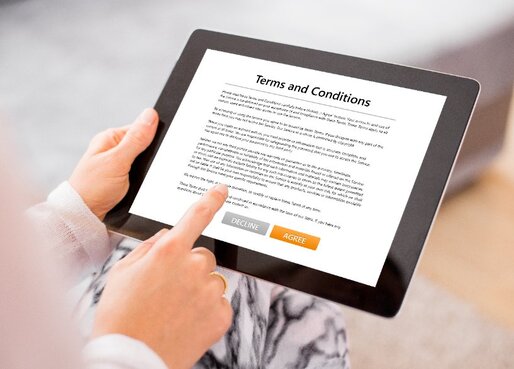
The Copyright Act pre-empts state law claims where the cause of action involves “rights that are equivalent to any of the exclusive rights within the general scope of copyright” and which “come within the subject matter of copyright.” 17 U.S.C. § 301. State law may not offer copyright-like protection. On the other hand, causes of action that are different from copyright are not pre-empted. For example, trade secret claims are universally held not to be pre-empted, since the basis of such a claim is breach of confidence.
What if a party enters into a contract binding the other party not to copy materials? For example, an internet platform requires its users to contractually commit not to copy lyrics posted on its site. That was the issue faced by the Second Circuit in ML Genius Holdings LLC v. Google LLC (2d Cir. 2022). The Second Circuit held that the claim was pre-empted.
Courts apply a two-part test for pre-emption: (1) is the subject matter of the cause of action within copyright and (2) whether the rights granted are equivalent to copyright. The first part was easily met; lyrics are literary works which are copyrightable. The question, though is, whether a breach-of-contract claim is “equivalent” to copyright.
Most courts look to see whether the state law claim has an “extra element” that makes it “qualitatively different” from a copyright claim. ML Genius argued that contract law requires mutual assent and valid consideration. The Second Circuit rejected that argument, because it would create a per se exemption from copyright pre-emption. Rather, it held that a “holistic” approach must be applied, which in that case meant that the rights were equivalent, since the contract basically barred copying the lyrics.
This decision stands in sharp contrast to the Seventh Circuit’s decision in ProCD, Inc. v. Zeidenberg, 86 F.3d 1447 (7th Cir. 1996). There, Judge Easterbrook wrote that such contract claims are not pre-empted:
Rights “equivalent to any of the exclusive rights within the general scope of copyright” are rights established by law—rights that restrict the options of persons who are strangers to the author. Copyright law forbids duplication, public performance, and so on, unless the person wishing to copy or perform the work gets permission; silence means a ban on copying. A copyright is a right against the world. Contracts, by contrast, generally affect only their parties; strangers may do as they please, so contracts do not create “exclusive rights.”
A number of Circuits, including the Fourth, Fifth, Eighth, Ninth, Eleventh and Federal Circuits, agreed with the Seventh Circuit, i.e., that because contract claims involve private arrangements limited to parties to the contract, they are not “equivalent” to copyright, which protects the work against copying by the world.
ML Genius Holdings has petitioned the Supreme Court for a writ of certiorari, so the issue may be clarified. In the meantime, parties that rely on contracts to bar copying or exploitation of certain materials, especially software, should be wary that these contracts may not be enforceable.
What if a party enters into a contract binding the other party not to copy materials? For example, an internet platform requires its users to contractually commit not to copy lyrics posted on its site. That was the issue faced by the Second Circuit in ML Genius Holdings LLC v. Google LLC (2d Cir. 2022). The Second Circuit held that the claim was pre-empted.
Courts apply a two-part test for pre-emption: (1) is the subject matter of the cause of action within copyright and (2) whether the rights granted are equivalent to copyright. The first part was easily met; lyrics are literary works which are copyrightable. The question, though is, whether a breach-of-contract claim is “equivalent” to copyright.
Most courts look to see whether the state law claim has an “extra element” that makes it “qualitatively different” from a copyright claim. ML Genius argued that contract law requires mutual assent and valid consideration. The Second Circuit rejected that argument, because it would create a per se exemption from copyright pre-emption. Rather, it held that a “holistic” approach must be applied, which in that case meant that the rights were equivalent, since the contract basically barred copying the lyrics.
This decision stands in sharp contrast to the Seventh Circuit’s decision in ProCD, Inc. v. Zeidenberg, 86 F.3d 1447 (7th Cir. 1996). There, Judge Easterbrook wrote that such contract claims are not pre-empted:
Rights “equivalent to any of the exclusive rights within the general scope of copyright” are rights established by law—rights that restrict the options of persons who are strangers to the author. Copyright law forbids duplication, public performance, and so on, unless the person wishing to copy or perform the work gets permission; silence means a ban on copying. A copyright is a right against the world. Contracts, by contrast, generally affect only their parties; strangers may do as they please, so contracts do not create “exclusive rights.”
A number of Circuits, including the Fourth, Fifth, Eighth, Ninth, Eleventh and Federal Circuits, agreed with the Seventh Circuit, i.e., that because contract claims involve private arrangements limited to parties to the contract, they are not “equivalent” to copyright, which protects the work against copying by the world.
ML Genius Holdings has petitioned the Supreme Court for a writ of certiorari, so the issue may be clarified. In the meantime, parties that rely on contracts to bar copying or exploitation of certain materials, especially software, should be wary that these contracts may not be enforceable.
